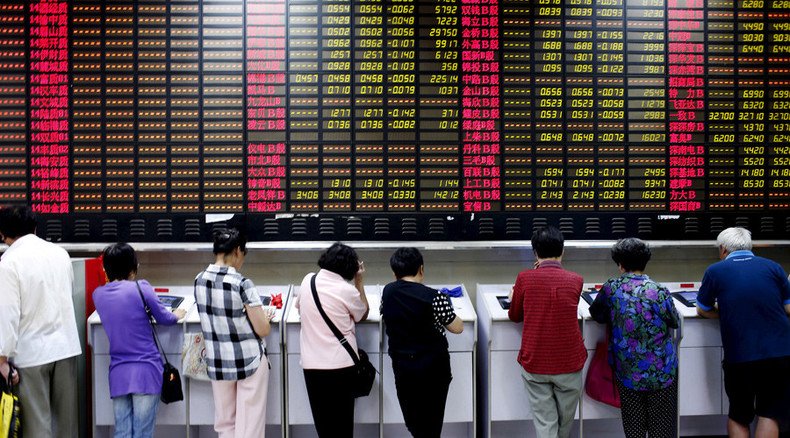Chinese stocks sink dragging Asian markets with them

The Shanghai Composite Index sank 6.15 percent to 3,748.16 points; the biggest daily fall since July 27. The Shenzhen Composite plunged even further - 6.58 percent - to 2,175.42 points.
Other Asian markets also closed in the red. The Japanese Nikkei lost 0.32 percent, the Hang Seng – 1.16 percent with the Taiwan TSEC 50 Index depreciating 0.44 percent.
The weak Chinese stock market and a slowdown in the real economy add to worries about the country’s economic growth despite continued government measures.
China’s Stocks Sink the Most in Three Weeks http://t.co/WYrRpFcN2Rpic.twitter.com/fYO9H45P6o
— Bloomberg Markets (@markets) August 18, 2015China has significantly devalued its national currency in an effort to boost exports, which fell 8.3 percent in July, compared to the year before. But the weaker yuan and government measures to prop up equities have failed to ease investor concerns.
READ MORE: China’s manufacturing index tumbles to 2-year low
"Global money managers are not really keen on taking risks at the moment," Bernard Aw, a market strategist at IG told AP. Among the factors that made investors cautious are the long-expected US rate hike and “other developments, such as the commodity slump and the China slowdown, added to the nervousness."
READ MORE: China stocks suffer biggest one-day loss in 8yrs, Shanghai Composite drops 8.5%
On Monday, the Bloomberg Commodity Index fell to a 13-year low as declines in assets such as oil, metals and other commodities increased the value of fixed-income assets.












